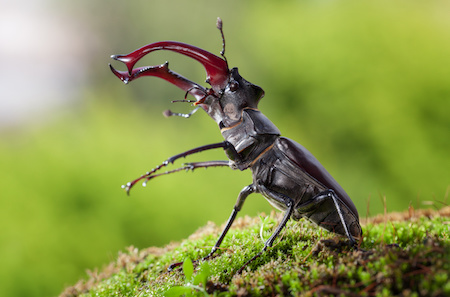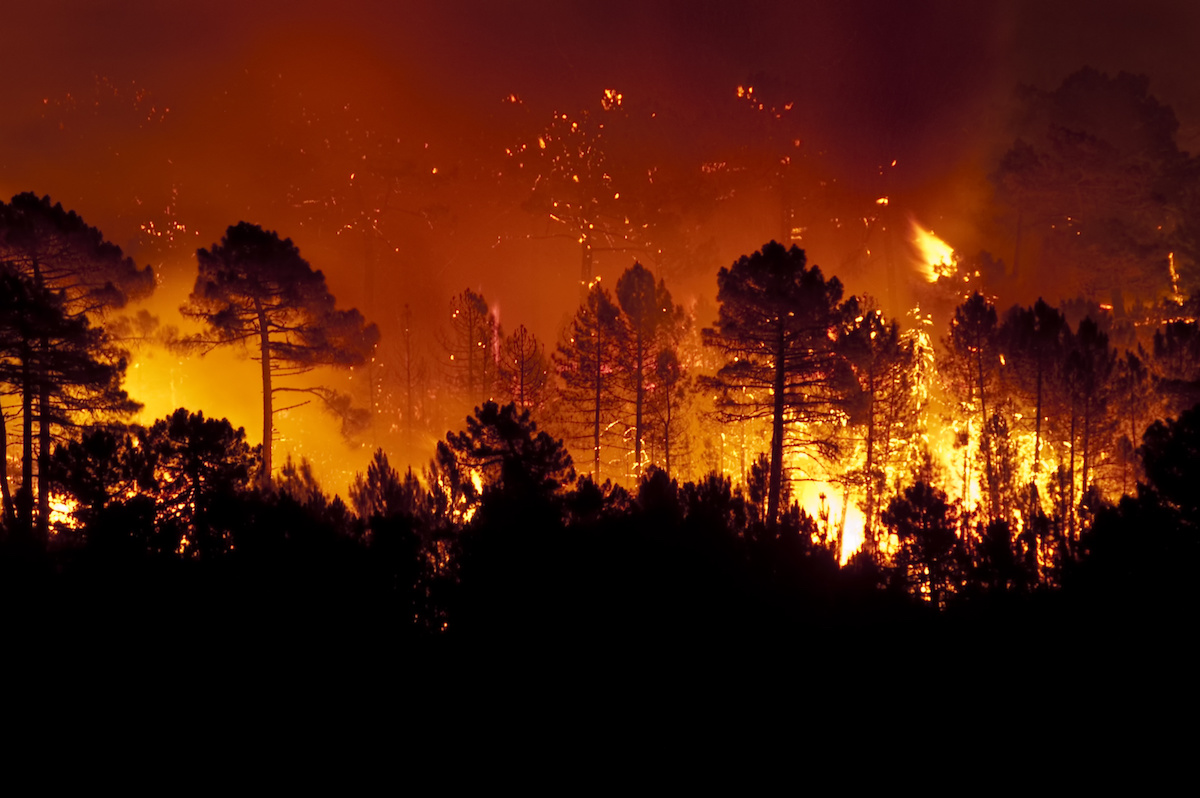Why the Forest Needs Insects
While bugs can be a nuisance in your home, they serve a very important ecological purpose. Besides, there’s no pest control company for the trees to call in the forest. While certain insects contribute to the decline of some of our forests’ giants, there’s actually quite a bit of evidence that suggests insect outbreaks lessen the likelihood of a subsequent wildfire, despite widespread belief of the opposite.
Natural Disturbances are Good for Forests
A forest’s sense of time is not like a human’s. Trees grow for hundreds of years and a human lifetime can be a blip on the lifespan of a pine forest out West. In fact, natural disturbances such as insect outbreaks, fires, and diseases help forests on a macro level.
Insects in the Forest
Insect outbreaks in the forest can help protect the longevity of the ecosystem. Large insect outbreaks can help trees release stored nutrients back into the soil to help renew the environment. Insect infestations can also help rid the forest of sick and aging trees, which reduces the competition among organisms and makes the ecosystem more productive.
Wildfires are Part of Forest Management
Fire is the primary source of change in boreal areas. As such, wildfire is crucial for forest health, as much so as the sun and the rain. Forest fires help valuable nutrients make their way from the litter on the forest floor back into the ecosystem. Wildfires also help stimulate new growth in the forest by opening the canopy to more sunlight. Certain species of trees, such as the lodge pole pine, reproduce after wildfires. There are multiple benefits to the forest, but wildfires also threaten life and property, which can make forest management decisions difficult for industry professionals.
Disease Can Be a Good Thing for the Forest
Additionally, while disease has a negative connotation (for good reason), diseases actually help the forest by removing weakened trees, such as the weak or old trees. The removal of these trees contributes to biodiversity and allows for forest renewal. Diseases can break down dead organic material, which recycles nutrients. The most common diseases in forests are root diseases.
Insect Outbreaks in the West

Insect outbreaks are good for the forest and contribute to biodiversity. For information about insects in your home and what to do about them, call The Killers Pest Control!
While it is widely believed that insect outbreaks, such as the bark beetles causing such catastrophic damage to the big pines of the West, contribute fuel to wildfires, this is not true. A new study finds that insect outbreaks actually reduce the severity of wildfires.
Mapping Fires and Insect Outbreaks
Researchers at the University of Vermont and Oregon State University conducted a study including 81 forest fires and insect outbreaks over a 25-year period in both Oregon and Washington state. The study looked at both mountain pine beetle and western spruce bud worm outbreaks and looked at the interactions between the insect activity and fire severity.
Outcomes of the Study
Even when controlling for wildfire severity, the researchers did not find any evidence that insect outbreaks negatively affect forest resilience to wildfire. Ultimately, climate change and forest management affect wildfire severity the most, and insect outbreaks may actually reduce the severity of future wildfires.
Our Thoughts Are With California, Oregon, and Washington
The wildfires over the last few weeks on the West coast have caused unimaginable destruction. Here at The Killers, we love our community and we love the Pacific Northwest. Our hearts break for those who have lost their homes, property, and livelihoods due to these unprecedented fires. We aren’t just a pest control company; we are members of our community, and we pray that those affected recover quickly: financially, emotionally, and physically.


